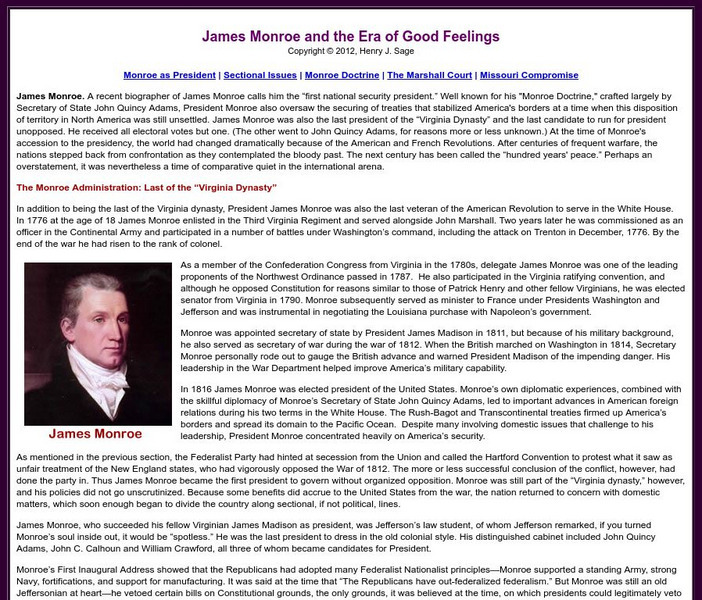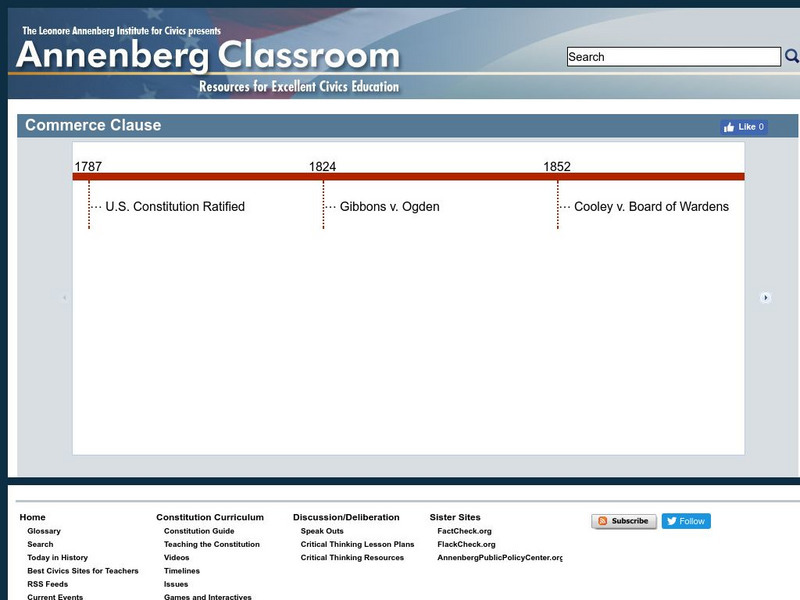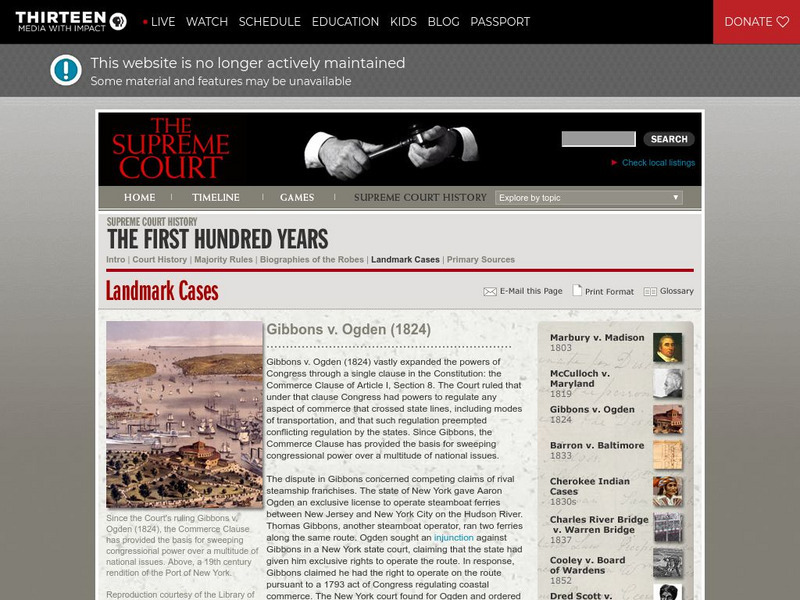Hi, what do you want to do?
Curated OER
Powers of Congress
Have your class fill out this comprehension sheet while reading about the powers of Congress. There are ten multiple choice questions focused on the rights, powers, and limitations of Congressional law.
Curated OER
Gibbons v. Ogden (1824)
Students examine state rights and the commerce clause. In this Supreme Court lesson, students examine primary documents from Gibbons v. Ogden and discuss the implications of the decision.
University of Groningen
American History: Documents: The Marshall Cases: Gibbons v. Ogden
The important Supreme Court decision concerning interstate commerce is presented here.
Henry J. Sage
Sage American History: James Monroe and the Era of Good Feelings
A complete look at the administration of James Monroe and the policies of the Era of Good Feelings. You can read about the domestic policies, foreign affairs, and important decisions of the Supreme Court made during the Monroe...
Other
Age of Jefferson and Jackson:john Marshall: The "Man Who Made the Court Supreme"
Read a thorough essay discussing the many important decisions handed down by the Supreme Court while John Marshall was Chief Justice. There are hyperlinks to each of the decisions.
iCivics
I Civics: Curriculum Unit Landmark Library
This library of mini-lessons targets a variety of landmark cases from the United States Supreme Court and includes a one-page reading and a one-page activity.
Tom Richey
Tom richey.net: The Marshall Courts: Revenge of the Federalists [Ppt]
Presents key ideas for examining the impact of Supreme Court decisions under Chief Justice John Marshall on the powers of the federal government. Includes an activity at end of presentation.
Annenberg Foundation
Annenberg Classroom: Commerce Clause
Check out this interactive timeline on commerce clause in the United States.
PBS
Wnet: Thirteen: The Supreme Court: Landmark Cases: Gibbons v. Ogden (1824)
PBS features a summary of the landmark Supreme Court case of Gibbons v. Ogden which dealt with congressional powers through the Commerce Clause of Article I, Section 8. Decision written by Chief Justice John Marshall.











![Tom richey.net: The Marshall Courts: Revenge of the Federalists [Ppt] PPT Tom richey.net: The Marshall Courts: Revenge of the Federalists [Ppt] PPT](https://static.lp.lexp.cloud/images/attachment_defaults/resource/large/FPO-knovation.png)

